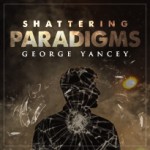So now that the SC religious liberty cases have been decided, it is time to take stock. Clearly, the Roberts court supports religious liberty. And unlike the Dobbs case, this includes Roberts as well as the other conservative justices. Let us look at the cases one by one with my nonlawyer-trained mind.
First, you have Shurtleff V. Boston. In this case, the city of Boston denied Shurtleff’s request to fly a Christian flag on a third city pole, and they had allowed other groups to do so. Still, They denied Shurtleff under the idea that to allow him was to violate the separation of church and state. The Supreme Court disagreed in a 9-0 decision. This one was a slam dunk. Even the ACLU agreed that the city of Boston violated Shurtleff’s free speech rights. Of the religious freedom cases, this one is the least controversial.
Now we move to the Carson V. Makin case. In this case, the state of Maine provided funds for private schools but not religious schools. Once again, separation of church and state claims was the reason given. Specifically, Christian schools argued that they should be treated like other private schools. And the Supreme Court agreed with them in a 6-3 decision, with the conservative justices siding with the Carson and the schools. Even though this case was clearly decided on partisan lines, the reasoning was the same as the Shurtleff v. Boston case. The argument is that schools should not be treated worse simply because they are Christian. Separation of church and state is meant to keep them separate but not treat religious organizations worse than secular ones.
Then there is the big one, the Kennedy V. Bremerton School District. In this case, a coach goes to the fifty-yard line to pray after football games. The school district forbids him from doing so and eventually fires him for these actions. This one was once again decided on a 6-3 partisan vote. I admit that this is not quite as clear-cut a case as the other two. Two questions have to be answered. First is the coach compelling students to participate in a specific religious ceremony. Second, is the coach being treated differently because of his Christian faith, as was apparent in the first two cases? Let me take these questions one at a time.
I did not review the entire case, but it seems to me that there is no evidence that the coach put overt pressure on his players to join him. I am fairly certain that if he had done so many of the talk shows that discussed this case would have provided that evidence. Until they provide that evidence, I will assume that he did not put that sort of pressure on the players. That makes all the difference to me. I have heard that his mere presence at midfield “could” imply to his players that they needed to pray or else they would not play. Well, we can imagine all sorts of things that might happen if a person does a specific action. But if we limit our freedoms to any that has no potential detrimental effect, none of our freedoms are safe. I have to answer no to the first question in that he is not compelling his players to pray until someone finds reasonable evidence to the contrary.
The second question is whether he is being treated like everyone else. This is difficult because, unlike in the first two cases, we do not have the control group of individuals who received money for their schools or were able to fly the flag they wanted. To the best of my knowledge, no one else was doing something like this after the game. So I have to go the hypothetical route. Would the school district be okay with someone doing a similar expression if it was not a Christian expression or an expression they like?
I cannot speak for the school district since I do not know any of them. I can speak for a lot of people who attacked this coach. You see, many of these same people defended the kneeling of Colin Kaepernick. Remember that Kaepernick did his kneeling during the actual performance of the National Anthem, which is part of the time when he is technically “on the clock.” Kennedy is praying after the game is over. Would the same people blowing a gasket over Kennedy’s prayers be upset at a coach taking a knee for the National Anthem? I do not think they would. Given this belief, I suspect many who envision this as a separation of church and state violation would approve of non-Christian expressions. This leads me to think that it is more likely than not that Kennedy is being treated differently due to his Christian faith.
Just as important as the decisions of the Supreme Court is the reaction to those decisions. Especially the claims that the majority violated the separation of church and state. It seems that the same voices concerned about this separation when it is the church interfering with the state are not concerned if the state treats religious groups worse than others. And dare I say that this is really the case with one specific religious group, which is anything that can be tied to white Evangelicalism. I do not seem to ever remember these voices when Eric Walsh was fired for his preaching against homosexuality in his church. I do not remember these voices when the University of Iowa practices viewpoint discrimination against Christian student groups. I am glad these cases worked out for good, but these voices only stick their heads out to ensure that Christians do not misbehave. They do not care if others misbehave against Christians.
This is a tell. The separation of church and state cannot just be about keeping religion from interfering with the government. It also must be about keeping the government from mistreating others based on their religious beliefs. Clearly, there is a Christianophobia that convinces some to use the principle of separation of church and state as a weapon against the object of their religious bigotry. An interested media and academic would more fully investigate this tendency. But I doubt that we will see such investigations any time soon.
One final point. I sometimes hear that Christians have privilege. Because of that privilege, they are used to getting what they want at the expense of others. When others are treated equally, it feels like oppression to them because they are so used to having a societal advantage. While this is not always true, I have observed that most cases of religious liberty are like the ones that made it to the Supreme Court. They are cases where Christians want to be treated like everyone else. It seems plausible that the roles are reversed by those who make this argument. In a post-Christian culture where those with Christianophobia control many institutions, it is they who have become used to being able to use their cultural weapons against Christians. And when their ability to do so is taken away from them, and they must treat Christian as equal to others, they may be losing their privilege. And the loss of that privilege may feel like oppression to them.











